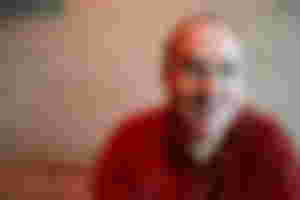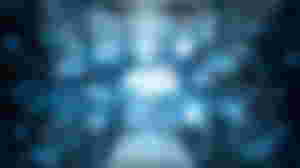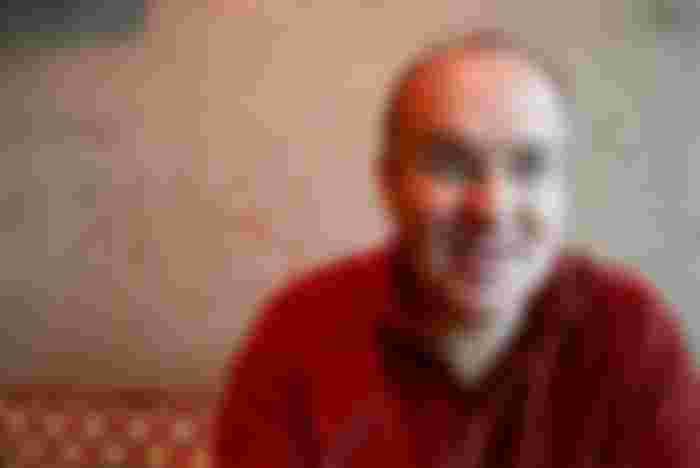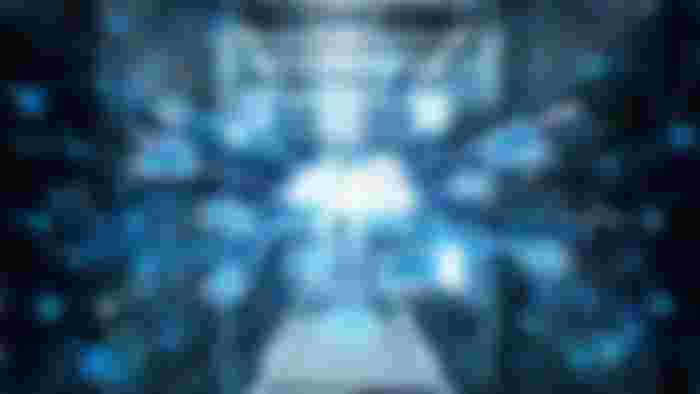From La Zone du Dehors in 1999 through La Horde du Contrevent and Les Furtifs (all republished in pocket by Folio , early 2021) to his latest short story Scarlet and Novak , released in March 2021, his work is crossed by a reflection on this what constitutes the vitality of existence and how to step aside in a dehumanized world. Alain Damasio has also written in Reporterre , the environmental media founded by Hervé Kempf and in the latest work by collapsologists Pablo Servigne and Raphael Stevens where he develops the notion of techococon. Meeting with cult author Alain Damasio.

Your latest news Scarlet and Novak comes back to the almost intimate relationship we have with our smartphones. Have we all become too tech and digital?
It is my conviction. Above all, we have all become subjugated by trying to hide the truth from ourselves, that is, by trying to make ourselves believe that we have kept a lot of free will in the face of these technologies. However, we have entered into loops of addictions which almost fall under the domain of drugs . We now know that these mechanisms activate dopamine loops . Thus, the reward neurotransmitters are regularly activated and thus create dependency. Without these dopamine injections , you feel miserable. The Gafam (Google Amazon Facebook Appel and Microsoft ) have set up a whole constructionbased on this dependence for 25 years. They have refined, deployed and refined techniques based on behavioralism and many cognitive biases present in us. All this so that we spend as much time as possible on their networks, platforms and apps. So we are free not to use their technologies, we can not use them. But, from the moment you put your finger in it, it becomes very difficult to get rid of them and get out of the consented alienation that their use generates.
In The origins of the disaster , you advance the notion of technococon, what exactly is it?
The notion of technococon is pictured. I have the feeling that we have slowly inserted ourselves into a kind of chrysalis fiber optic and that we interface the world mainly through smartphones, screens and laptops. We have a whole set of services, apps and technologies that conjure up a direct relationship with the world. From now on, we no longer need to be directly confronted with others. You can use video, messaging or even writing instead of speaking. Today, there are plenty of strategies for bypassing the human relationship made possible by these technos. It is the same for the relationship with the world and in the construction of the relationship with oneself.
The technococon is a cajoling sphere which pampers us and which sometimes makes us feel good. The technococon protects us and shelters us, but its sphere also encloses us. Overshadowing the relationship with other people by technology can be enjoyable. This is undoubtedly what explains the success of technococon among teenagers, at an age when confronting others is difficult. The technococon is a gentle and serene trap. You don't immediately feel what alienating it has, that's what strikes me.
How does the feeling of comfort that technococon provides contribute to ecological crises?
From the moment when the real world is doubled by a digital world powered by data centers running on fossil fuels or nuclear power, the impact on the environment becomes problematic. Today, around 20% of electricity is spent to run the networks. It's crazy to think that 20% of the energy is used to operate a second virtual world in which we now spend most of our time.
From La Zone du Dehors , your work is crossed by the idea of taking a step to the side to get out of a system that deprives of freedom and devitalizes. Today, is branching off, first of all giving up digital technologies?
It is rather a problem of the art of living. We have not yet found an optimal and intelligent savoir-vivre with digital technology since the appearance of the Web in 1995 and then of the mobile phone. These two tools are extraordinary and bring emancipation. They created a false opening, however. It does not cut everything, disconnect everything, we do not want to cut ourselves off from all that they bring that is great.
Accessing all the music in the world via your smartphone is fabulous, ditto for movies or access to Wikipedia. Digital technology offers opportunities to access cutting-edge knowledge that previously would have required spending a lot of time in library research.
“The technococon protects us and shelters us, but its sphere also encloses us
While keeping this emancipatory power of technology, we must succeed in reducing everything that is superfluous, superfluous and everything that is properly addictive. In the purely addictive, there are some video games, not all of course. There are also many things that distract our attention such as putaclics, that is, certain information based on people or gossip. Added to this is the time wasted clicking on tweets, replying, repeating or stopping on bullshit without any interest or the moments spent in the evening by boredom and fatigue on Facebook while waiting for the next one. notification. To get out of these pitfalls, we must do, this has not yet been undertaken, a real work of digital education. Thethe use of these tools .
Today, we are in the digital orgy. Even with a dictionary next to you, rather than opening it to look for the definition, we will send, just lazily, a Google request that will go to a data center in the United States and which will consume the equivalent of a light bulb on one hour. This digital orgy is the same when brushing your teeth with the tap on or flushing the toilet for a little pee. These rules of life, we are starting to integrate them, but in the digital world we have not yet understood anything. In this area, we are still in mismanagement. We store tons of videos or photos in three cloudsat the same time, when we could have sorted out a large part of these stupid photos. This lack of education and sobriety leads to a form of ecological break based on a form of Epicureanism.

What the author of science fiction that you would tell a person's future that would address a French from the beginning of the XXI th century?
I think he would say to him, "Look man, you're in the tech climax , you're in the technocene sky. What you are going through, no other epoch in history has lived it and no other epoch will live it. You are in the technological orgy, take advantage if you want to take advantage of it. Because it will not last and we will come back, so much the better, to low-tech and more sober, more resilient and more robust technologies. There, you are in the moment of hyper consciousness, of no limits, of delirium where you believe that you can store everything indefinitely including your rotten videos. Enjoy it, why not, but know that you are in an extremely privileged and bizarre moment of the human species. "
In the era of the Anthropocene and as collapse theories, the dystopia genre seem ubiquitous, how do we make alternatives desirable? Which ones besides?
Even though Pablo Servigne is a friend, I am very critical of collapsology or of insisting on the collapsing dimension because I see enviable dimensions in it. I find, for example, that not having enough rare earths to make a smartphone per person is not a collapse but strikes me as something positive. Not having enough cars, planes or oilwill restore value and a precious character to the slightest displacement. Traveling will make us happy when we can. Today, we do anything, we take the plane to go to Malaysia or Bali and back. I find it very good that we are losing something of the order of luxury and especially excess, which is poorly experienced and not well understood. I don't call it a collapse. I think we have gone too far in hyper-technology and I think that going back to something equivalent to the years 1950-1960 will suffice very well.
The alternatives are there. They are desirable because what is lacking is the relationship to the body which has been erased in favor of a very dematerialized and disembodied world. The return to the body made possible with the technological dropout will result in a much more intense pleasure in life.
Then, the other horizon, in my opinion, is to reconnect with the living. Our society has been cut off from nature for two centuries. She made a mistake by living in the urban area and by wrongly considering that the urban represented the summit of social and human life. By reconnecting with forests , massifs, scrubland , moors, oceans and animal species, by understanding the extent to which to live with them, among them and in the midst of them without wanting to crush them or become the masters of the world, is going to make us a lot richer, awake and alive than we are now. This awareness, this experience and this lived experience are missing today. The alternatives are to be found around this renewal.
Finally, will you have any advice to overcome our digital addiction and take a step aside?
Go to places where pockets of freedom are still open, that is, far from cities, in the countryside or in the mountains. Communities or ZADs offer real alternatives for living differently , places where it is possible to wander, talk, imagine, hike, not endlessly meeting representatives of authority and reminders to order

